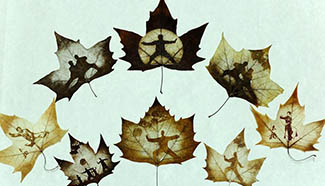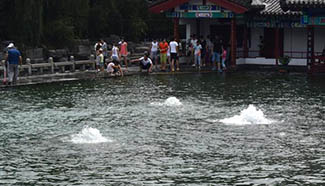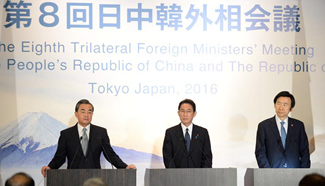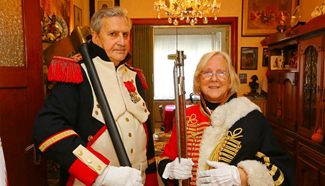By Chris Dalby
BUENOS AIRES, Aug. 24 (Xinhua) -- Despite the Rio 2016 medal table being dominated by the United States, Latin American countries improved on their performance over London 2012, bringing home 18 gold medals, four more than last time.
The passions of Brazilians fans, after a disappointing World Cup, were high. Argentina, always looking to outdo its northern neighbor had its hopes. Cuba, Mexico, Colombia and others, each with their own proud sporting traditions, stood ready to test their very best.
In the end, seven countries in the region won medals, scoring a total of 51 medals (18 gold, 15 silver and 18 bronze), with Brazil, Colombia and Argentina being particularly gleeful.
Brazil led the charge with 7 gold, 6 silver and 6 bronze medals, finishing 13th in the medal table. While it won triumphant gold medals in the men's football and men's volleyball, Brazil saw other less expected successes.
Rafaela Silva (judo), Thiago Braz (pole vault), Robson Conceicao (boxing), Martine Grael and Kahena Kunze (sailing), Alison Cerutti and Bruno Schmidt (beach volleyball) all gave the Brazilian fans something to cheer about. They broadened the horizons and the hopes of Brazilian sports, taking the country that one elusive step closer to being a true Olympic power.
Cuba followed Brazil with 11 medals (5 gold, 2 silver and 4 bronze), a slight step back from the 14 medals seen in London 2012.
Colombia and Argentina did their part, improving their standings. Colombia, who had never won more than a single gold at an Olympics, suddenly found itself with three, thanks to Oscar Figueroa (weightlifting), Caterine Ibarguen (triple jump) and Mariana Pajon (BMX cycling).
Two more silver medals and three bronze led Colombian athletes to come home in triumph.
Argentina saw its best balance since London 1948 with 3 gold and 1 silver. Paula Pareto (judo), Santiago Lange and Cecilia Carranza Saoli (sailing) and the men's hockey team all took home the gold while long-absent Juan Martin del Potro roared back to form to claim the silver in the men's tennis.
There were frustrations, too, for Argentina, including the women's hockey team, who went home empty-handed for the first time in four Olympiads.
The men's football team, champions in Athens 2004 and Beijing 2008, were out in the first round, capping a difficult year for the Albiceleste.
The country's handball team, winners in Athens and third in Beijing, saw its golden generation bow out with no medals.
However, the greatest deception for Latin America was doubtless Mexico, who went from 7 medals in London, including one gold, to just five in Rio (2 silver, 3 bronze).
The country cheered nonetheless when Maria Guadalupe Gonzales (20km walk), German Sanchez (diving) and Maria del Rosario Espinoza (taekwondo) won their silver medals.
Venezuela made itself heard with a silver for Yulimar Rojas (triple jump), and bronze for Stefany Hernandez (BMX cycling) and Yoel Segundo Finol (boxing).
For the Dominican Republic, the one gold and one silver standard set in London could not be replicated, with only Luisito Pie taking a bronze in taekwondo.
No doubt most fans will have overlooked the Latin American nations, which did not share the spotlight with the U.S. or China. But for the first Games on the continent, while audiences were thrilled by shattered records and towering performances, Latin America quietly did itself proud.











